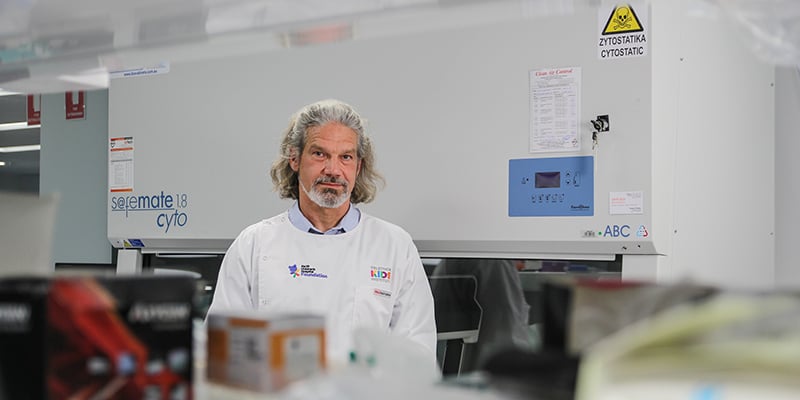Search

News & Events
Pioneering mental health researcher named a 2021 Human Rights Medal finalistCongratulations to trailblazing mental health researcher Professor Helen Milroy, who has been announced as a finalist for the 2021 Human Rights Medal.

News & Events
Ideas Grants to support innovative researchTwo research teams, led by The Kids Research Institute Australia, have been awarded more than $2 million to fund innovative projects.

News & Events
The Kids Research Institute Australia researcher a nominee for WA’s Young Australian of the YearDr Hayley Passmore is among four nominees for Western Australia’s 2022 Young Australian of the Year.

News & Events
Support for kids’ mental health and new cancer therapies boosted by WA Child Research FundThe Kids Research Institute Australia researchers have been awarded 12 grants in the latest round of funding from the WA Child Health Research Fund (formerly the Telethon-Perth Children’s Hospital Research Fund).

News & Events
The Kids infectious diseases researcher named a WA Young Tall PoppyA The Kids researcher focused on ensuring kids are protected from infectious diseases will be named among WA’s most outstanding young scientists at the upcoming 2021 Young Tall Poppy Science Awards.

News & Events
Julie Bishop Award aims to help young female researchers jump career hurdlesThe Kids Research Institute Australia Chair Julie Bishop has pledged $50,000 to fund an award designed to help young female researchers overcome persistent barriers to career and leadership success.

News & Events
Parenting in the Digital AgeBeing a parent in the 21st Century can present some challenges, so it is important to use all the tools.

News & Events
DETECT Schools Program UnderwayThe DETECT Schools program is underway, with swabs taken at 13 of the participating schools across Western Australia. No asymptomatic COVID-19 has been detected to date.

News & Events
Antiviral drug shown to speed up COVID-19 recoveryAn international research collaboration, including The Kids Research Institute Australia infectious disease specialist Tobias Kollmann, has shown that the antiviral drug Interferon can speed up the recovery of COVID-19 patients.

News & Events
Home participation resource for children with disability and complex needsFor families with a child with disability, this involves many extra care duties especially if their child has high and complex needs.
